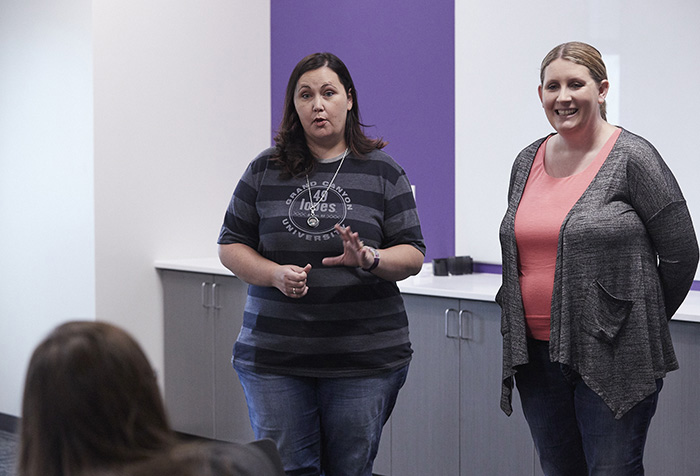
By Theresa Smith
GCU News Bureau
Dressed in Harry Potter style robes and clutching wands, Crystal McCabe and Dr. Lynn Basko are ready to invoke magical chants of wisdom over what is expected to be a rapt audience of teenaged prospective teachers and veteran high school teachers. For these Grand Canyon University educators, teaching is magical, as evidenced by the humorous, 45-minute presentation they have planned for the 2018 Educators Rising National Conference on Thursday-Saturday in Orlando.
The students will be asked to text one-word descriptions of their passion for teaching and the reasons they want to teach. These responses will be formatted into a Word Cloud, with the most common responses in larger type, displayed on the video screen in the presenting room, and then juxtaposed with a Word Cloud culled from responses from GCU College of Education faculty.
“We expect the results to be very similar, just showing that what motivates them at this very beginning stage when they are just thinking about going into education is what continues to motivate them even when they are on with their career,’’ said Basko, who will channel Professor Minerva McGonagall while McCabe will embrace a muggle role.
The pair will present at the conference for aspiring teachers from all across the country, along with four other COE instructors: Dr. Marjaneh Gilpatrick, Kimber Underdown, Dr. Jeff Martin and Dr. Brandy Miller.
“I am excited for students to see our faculty because they model best practices,’’ said Gilpatrick, COE’s Executive Director of Educational Outreach. “Also, it reconnects our faculty with high school-aged students. When we have that opportunity to be in front of those (high school) students, that’s when we realize the impact we are making with future teachers. It comes back full circle.’’
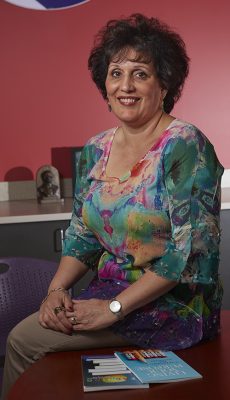
GCU is among 18 universities participating in the innovation exhibit at the conference, which will be kicked off by keynote speaker Mandy Manning, the 2018 National Teacher of the Year.
In an attempt to persuade the aspiring teachers to stay the course they are charting “by finding comedy in a situation," McCabe will share one of her toughest moments. On the day of her teacher evaluation, by both a school and a district administrator, one of her emotionally disabled students streaked in the classroom.
“The evaluator did not even know that it happened, that’s how great my para’s (paraprofessionals) were in the classroom, based on the relationship they had developed with students,’’ McCabe said. “So we wanted to share that story, to show how important relationships are in keeping that sanity in the classroom. Just let it (problems) roll off your shoulders. I tell new teachers, ‘You will never have a kid streak on your evaluation day.’ "
Unlike most professions, potential teachers have witnessed the job all of their school lives. Consequently, they likely have seen stressful situations.
“All of the strategies we present are about maintaining your sanity,’’ Basko said. “It can be a really frustrating career. There can definitely be days where I’ve come home in tears, so we offer strategies that can help new teachers stay above that.’’
They encourage the high school students to investigate the profession by interviewing teachers, counselors and school psychologists in their own schools.
“I think the conference helps with starting to build that passion for teaching,’’ Basko said. “We need a strong workforce of teachers coming in.’’
McCabe said: “Seeing them self-identify at a young age, it shows it is a calling.’’
Both presenters can relate to audience members, who are likely to start their careers in K-12 settings.
For seven years, McCabe answered the calling as a special education teacher. She came to GCU five years ago, earned the assistant professor title last year and will finish her doctoral degree in the fall. Basko taught fifth grade for eight years before moving on to GCU, where she has gained a doctorate and secured the assistant professor title. Both instructors teach online COE students on a full-time basis.
McCabe will make a second presentation at the conference, with Underdown, titled, “The Power of Recognition and Gratitude in the Classroom.’’
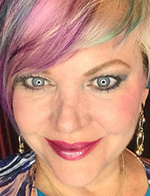
Underdown came up with the idea after reading "O Great One! A Little story about the Awesome Power of Recognition" by David Novak. McCabe read the book, at Underdown’s suggestion, and they both agreed that applying the theme to a classroom setting would make for a relevant presentation for the conference.
“What we found in our research is that some teachers are so focused on catching the things students are struggling with and helping them make growth that we do not always see the positive things they are doing, ‘’ McCabe said.
The pair suggest that teachers emphasize gratitude from the beginning of the school year, whether it is writing a note of appreciation to the custodian for cleaning the classroom or to the principal for reading to the class. They also suggest that teachers make positive phone calls to parents of students who might not be accustomed to receiving positive feedback about their children.
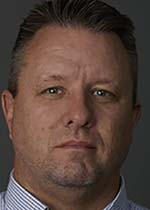
While Martin will share classroom-management strategies in an interactive, technology-oriented presentation for novice and experienced teachers, Gilpatrick will emphasize the importance of teachers as storytellers.
“It is something that helps develop and nurture the student’s imagination,’’ she said. “That’s really, really important because we want them to be able to learn metaphorically and think symbolically, and storytelling is how students think and make sense of the world. Myths from all cultures help explain the different ways that the world works. For example, why the moon is round. Why the sun is shining. Why the hyena has spots on it. We learn language by listening, and then we produce and speak. The more those two are developed, the better students are able to read and write.’’
The basis of Gilpatrick’s presentation is an article she co-authored, “Tell Me a Tale: Using the Art of Storytelling to Increase English Learners’ Oral Language Abilities,’’ published in 2015 in the Arizona Reading Journal, an educational publication.
The first of Miller’s two presentations is titled “Input, Output, Upside Down!’’
“It addresses the lack of preparedness that many general education teachers have when they step into a classroom with special education students and they don’t know how to adjust their lessons appropriately,’’ she said. “For example, a student with a learning disability in reading may need some really targeted instruction. They might need all of their instructions orally as well as in writing because they can’t read them all that well. Or when they are doing math problems someone may need to read out the word problem so they can do the math part.’’
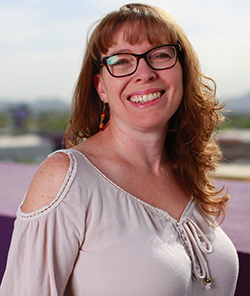
The way material is presented is “input" and the way students are expected to demonstrate their mastery of the content is the “output," according to Miller.
Her second presentation is about building a philosophy of inclusion.
“With the right training for the staff and the teachers, nearly all students can be included in the general education classroom,’’ she said. “We have to make sure everybody has the tools and resources that they need, so we start with that philosophy of inclusion and then provide the training like crazy. But if you provide the training without building that philosophy, you’re not going to get anywhere.’’
Miller’s master’s degree has a specific emphasis on special education, and her doctorate in organizational leadership from GCU has an emphasis in K-12 education.
“Hopefully, I will give them a real heart and passion for including students with disabilities, and that’s why I am going and presenting,’’ she said. “I’m looking forward to promoting that philosophy of inclusion.’’
COE Dean Dr. Kimberly LaPrade is incredibly proud of the faculty members who will present at the conference.
“Our faculty do such a great job with integrating technology and with integrating best practices to engage students,’’ she said. “They’re modeling student engagement, so they are going to be talking about how they do that with the students at the conference. Those students can see that if they choose to come to GCU to enroll in the teacher preparation program, they will be working with the people who have had such a great result in helping teachers do well and succeed.’’
Contact Theresa Smith at (602) 639-7457 or [email protected].



































































